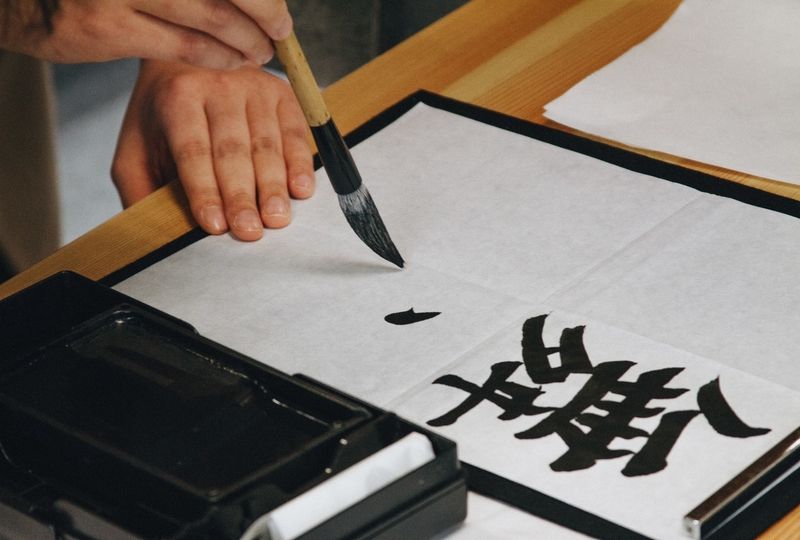Top 10 Ways to Make Learning Chinese Fun

Sometimes a quiet room and a good cup of coffee just isn’t enough to memorize those Chinese characters. We’ve all been there. Even though you love learning Chinese, your brain has begun to rebel at the mere sight of a textbook! But who says that learning needs to feel like learning?
Having fun while learning can seem a bit frivolous, especially in today's fast paced world, but studies show it’s an effective way to recharge your brain while possibly creating new neural pathways. A good mood can increase your comprehension, creativity, memory, attention, and motivation. Not to mention that our brains are capable of associative learning. This means that if you regularly have fun while studying Chinese you can program your brain to automatically see learning Chinese as fun! Not that it isn’t already.

10 Best Ways to Learn Mandarin
It is always a good idea to stick to your learning program's syllabus, but here are a few ways you can give your brain, and yourself, a bit of a break while studying.
1. Treat Yourself Like a Kid
This one is really important! Hence it is at the top of the list. Don’t be afraid to make mistakes! Learning is messy, and not always a linear process. While figuring out fun new study tactics you are almost guaranteed to look a little goofy. If you act like a kid and just follow your curiosity you're certain to find something that works for you! I've had college professors recommend watching children’s tv shows to help with comprehension. Did I, a grown adult, look silly while watching a Chinese children's tv show? Yes. Did it work? Yes! Western Buddhist Alan Watts once said that enlightenment is being in a state of constant amazement. Who is more constantly amazed than a child? If you are too nervous to try something childish you might just miss out on an amazing learning experience.

2. Find Study Buddies
Learning Chinese is by no means easy. With its vast varieties of characters and nuanced grammar patterns there is just so much to memorize and practice. Everyone is different of course, and some people genuinely prefer to study alone, but finding a study group can create a positive social environment focused on helping you learn. Having a group of people to study with can create a sense of accountability as well as a safe environment for you to practice and make mistakes. Empathetic in person feedback is one of the best ways to learn a language. With luck will have found a group of friends who will be excited to try out fun studying ideas with you. However, in a world of unpredictable lockdowns this might be a tall order. If you are unsure about how to proceed or just too eager to wait, check out Speechling’s Chinese courses as you will have access to a real tutor who will offer you personalized feedback!

3. Learn About Chinese Culture
Chinese, like all languages, is contextualized by the culture in which it exists. Its history can literally be seen in its characters and you can hear its philosophy through its idioms. Memorizing characters and tones is great but without taking time to understand some history speaking the language can feel hollow. If you are fed up with your studies watch a Chinese TV drama, or read some Chinese philosophy. Depending on your locale you might even be able to find in person classes about history, music, tea making, or Chinese proverbs.

4. Listen to Chinese Music
Perhaps you are someone who loves to move and groove. Don't let studying hold back! Pause the study session and play some Chinese jams. If that isn’t enough you can always grab some study buddies for an impromptu Chinese music dance off. Even if you just have a commute to class or work, passing the time with some tunes can help with comprehension and can help you get used to the sound of spoken (or sung) Chinese. Odds are you already know what genres of music you like so just find their Chinese counterparts! If you are looking to give your visual senses something to do you could always look up the lyrics and try to read along.

5. Karaoke!
Speaking of music, lets talk about karaoke! In case you aren’t familiar with karaoke, it originated in Japan in the 1970s and has since been widely embraced by many Asian countries including china. Simply put, you pick a song you like, then you sing along with the lyrics as they show up on your screen! If you are ready to unleash your inner rock-star, grab some friends and see if there are any karaoke bars in town, or get some karaoke Apps on your phone! What makes it such a nice study tool is that you can pick a song to match your skill level. If you are working on your annunciation and character reading, pick a slow song that will give you time to think. If you are ready to push yourself to the limit, pick a fast paced song to give you a run for your money. There really is no wrong way to do karaoke as it isn't about being good, it's just about having fun.

6. Make a Funny Slide Show
If you have never made a slide show party you are missing out. Pick whatever topic you like, maybe you want to prove once and for all that your music taste is superior to all others, or maybe you just want a chance to show off your celebrity crush. Be as funny or logical as you like, just make sure you have fun! Writing your slides in Chinese will be a great way to practice your grammar, vocabulary, and ability to structure logical statements. Once you have your slides, pick a time to get together with your friends and practice your speaking skills while you give your presentations. For an added challenge you can have your friends ask you questions to develop your ability to converse in Chinese.

7. Journal in Chinese
This option is for those who like those quite reflective moments. The beauty of a journal is that you don’t have to show it to anyone. That means there are no expectations! If you are new to journaling or to Chinese, just start out by writing a few words or sentences. As you get more comfortable you can work up to writing paragraphs or go right on and fill the whole journal if you want. The obvious perk of keeping a journal is the daily chance to practice your writing, but it comes with a major bonus of helping you track your progress. After journaling for a few months or years you can go back and see page by page how hard you’ve worked and how much your skills have improved. You'll probably even get a good laugh out of how hard you struggled at things that seem so easy now.

8. Learn Calligraphy
If you have ever spent time in a formal Chinese language course you’ve probably heard of Chinese calligraphy. Written Chinese can be fairly alien to a new learner who hasn’t seen characters before. Calligraphy classes are a great way to familiarize yourself and make writing the characters feel less clunky. If you are able to find a calligraphy class the teachers may help you understand the history behind each character, the stroke order for each character, and will probably be eager to offer you tips and tricks to help you on your learning journey. Calligraphy can even turn a study session into a chance to unwind as you calmly and slowly take time to understand and create each character.

9. Watch Chinese TV Shows
Everyone loves a good tv show, and everyone knows that gutrenching feeling that comes from realizing you just watched the last episode in your favorite series. Worry no more! Check out some Chinese TV shows! Much like listening to music, this is a great way to simultaneously practice your listening skills while getting an idea of Chinese culture. China has a lot of great television to offer like game shows, dramas, dating shows, comedies, documentaries and more. You are almost guaranteed to find something to your liking.
10. Incorporate Your Hobbies When Studying
When it comes to knowing what works you, you are the expert! If none of the suggestions above spark joy, take a second to think about what you really like to do and how you could incorporate it with some Chinese learning. Musicians may like writing songs in Chinese, historians might like to read about some history, and romantics can try their hand at writing some poetry. There is no wrong way to learn, so don't be afraid to find out what works for you.

Using Fun to Learn a Language
Since languages can be so complicated it can be hard to remember that at its heart it's fun! When learning Chinese or any other language, the whole point is meaningful social connection on some level, and fun is easily one of the best ways to connect. Having fun will help you relax, and being relaxed will help you be a more natural speaker. Benefits aside, you've been working pretty hard and probably deserve a little fun anyway.
